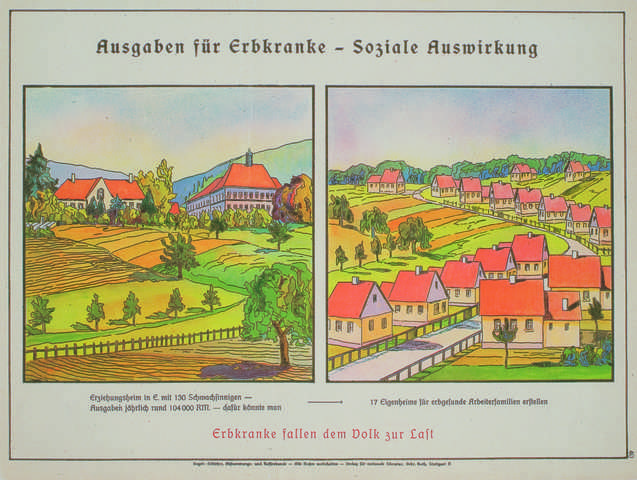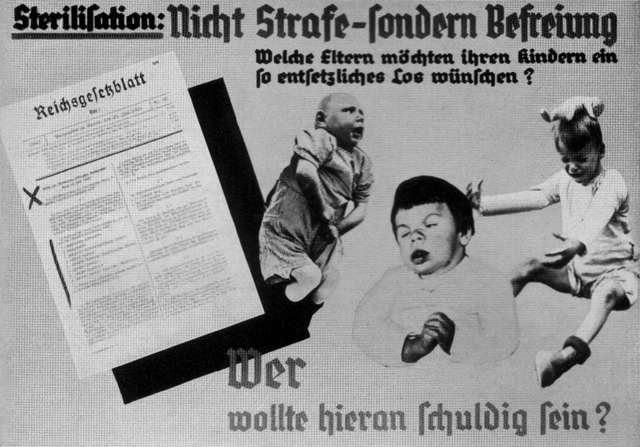»Racial hygiene« in National Socialism
»Racial hygiene« was one of the key elements of National Socialist ideology. It drew on eugenic, Social-Darwinist, racist and population policy ideas which had been discussed both nationally and internationally since the late 19th century. In the radical nature of the propaganda and the practical implementation in state action, National Socialist »racial hygiene« differed significantly from that found in the developments in Germany before 1933 and in the developments in other countries.
After 1933, eugenics became the raison d'état in Germany. Authorities, laws, propaganda and its institutional anchoring in medicine and science contributed to the dissemination and enforcement of »racial hygiene«. While a system of incentives was supposed to encourage the part of the population regarded as »racially valuable«, the people who were considered to be »racially inferior« by the National Socialists were systematically persecuted and eventually annihilated. Jews, Sinti and Roma, as well as those denounced as »asocial« and physically or mentally disabled people were marginalized and »eradicated«. The forced sterilizations carried out as of 1934, the »Nuremberg Race Laws« in 1935, and the »euthanasia« campaign that started in 1939 mark important steps of the »racial hygiene and policy« of National Socialism on the road from the exclusion to the annihilation of »racially undesirable« and economically »inferior« groups of people.

© Fritz Heinsius/Georg Ebert: Sonne und Schatten im Erbe des Volkes. Angewandte Erb- und Rassenpflege im Dritten Reich. Eine Bildfolge, Berlin 1935

© Alfred Vogel: Erblehre Rassenkunde in bildlicher Darstellung, Stuttgart 1938

© Volk und Rasse, 11th year, 1936